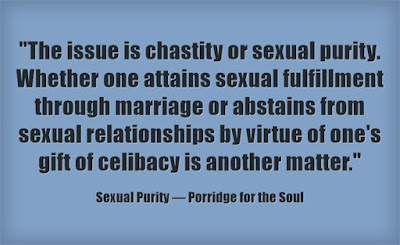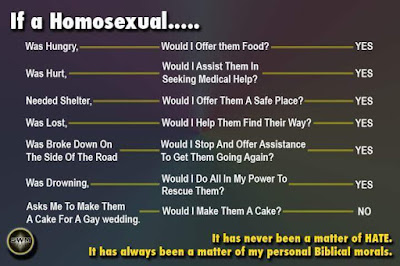Shifting into a lower gear in life might
mean better health, quality of life and relationships. After all, even if you
win in the rat race, you are still a rat.
By Anna Teoh and Dr Lim Poh Ann
Today, the prevailing philosophy in life is the bigger the better—bigger paychecks,
bigger cars and bigger houses. While there is nothing wrong with being rich, it
is dangerous when far too much time and energy are expended towards selfish
economic goals to the neglect of values, personal health and relationships.
Even as we watch TV advertisements of fancy cars or view
our neighbour’s house renovations, if we’re not careful to monitor our
thoughts, we too might get sucked into this materialistic whirlpool.
Choosing
Lifestyle over Life
We’re living in a world stuck in fast-forward. Always
on-the-go, we’ve become a society accustomed to fast food, drive-in outlets and
instant coffee.
When the chairman of Starbucks,
Howard Schultz, wanted to set up an outlet in Tokyo in the early 1990s,
consultants advised him against it as it was impolite (by Japanese culture) to
drink from cups while walking on the street.
However, Japan’s first Starbucks opened to overwhelming
response as the trend was in keeping with the people’s fast-paced lives.
We too often justify ourselves: We need to work hard for
financial security and to provide for our family’s needs. But, in doing so, are
we choosing a lifestyle over a life?
Too
Tired!
Hectic, demanding and fast-paced lives. That’s the way
most people live their lives today. After work, they come home too tired to
talk to their spouses and children. They rush through a silent dinner, watch
television and go to sleep.
People have little time for their friends and family
members, much less for God, exercise and personal development. Family devotions
are rare and time is cut back on prayer.
Sleep deprivation is rife as people spend time on the
computer to catch up on work or their hobbies (including social networking)
before retiring for the night.
The
Affluenza Epidemic
Apart from the global flu pandemic, there is another
epidemic. “Affluenza”, coined from the words “affluent” and “influenza”, is a
condition characterised by constant striving for more wealth. Highly contagious,
it is a socially-transmitted disease. Symptoms include compulsive shopping,
high debt, overwork, obsession with "having it all", extravagance and
stress.
Jane Austen once said, "A large income is the best
recipe for happiness I ever heard of." But her claim is increasingly being
challenged today. Money has the power to make people happy, but only when they
are rising from the low-income to middle-income group. After their basic needs
are met, more money could make people less happy and more worried!
Instead of attaining a better quality of life, they end
up feeling perpetually dissatisfied. Thoughts are continually focused on
amassing more things and enhancing appearances while relationships with God and
man are sidelined.
These misplaced priorities could have been
avoided if they knew the value of contentment: “Yet true godliness with
contentment is itself great wealth. After all, we brought nothing with us when
we came into the world, and we can’t take anything with us when we leave it. So
if we have enough food and clothing, let us be content” (1 Timothy 6:6-8).
Downshifting
Downshifting, a
behavioral and lifestyle trend, is fast gaining acceptance. Downshifters voluntarily
choose to abandon their fast-paced, financially-driven lives in exchange for
lives at a slower pace. Basically, the live-to-work
principle is being replaced by the work-to-live
philosophy.
Downshifters often enjoy better health, more fulfilled
personal lives and improved relationships. It may mean cutting back on working
hours, being content with less money in order to embrace a more balanced and wholesome
life. Work is seen as just one area in life; the other areas such as personal
development, family, spiritual, physical, and social aspects of life are also
emphasised.
Carl Honoré makes a convincing case for slowing down in his
book, In Praise of Slowness. He challenges
the conventional view that faster is better. The philosophy of the Slow Movement, he says, is “not about doing everything at a
snail’s pace. It’s about seeking to do everything at the right speed. Savoring
the hours and minutes rather than just counting them. Doing everything as well
as possible, instead of as fast as possible. It’s about quality over quantity
in everything from work to food to parenting.”
Ways
to Downshift
Downshifting does not necessarily mean a total lifestyle
change. You can start by incorporating minor changes in your life such as:
1. Reduce
expenditure on unnecessary items. Resist compulsive shopping by leaving your
credit card at home, and save yourself the stress of settling debts.
2. Practice
frugality. Make a list before you shop for groceries. Browse through catalogues
for promotions. Consider budget local holiday destinations (a camping trip is
fun and less hectic compared to joining a tour group). Try giving handmade
items.
3. Value
functional utility over status when choosing goods.
4. Avoid
wastage. Cook just enough, turn off the lights when not in use. Save water by
doing the laundry when the load is full.
5. Decorate
your home keeping simplicity, elegance and functionality in mind. Browse
through websites and magazines to jumpstart your creative juices.
6. Try
growing your own vegetables if you have space for gardening. Not only are they healthier
compared to pesticide-laced vegetables, you also save money.
7. Buy
local food. This helps minimise food miles (distance over which food is
transported to the consumer) which has an impact on climate change.
8. Reduce
hours spent at work and commuting. If possible, try not to work overtime.
Consider switching jobs or relocating to optimise use of time.
9. Donate,
reuse or recycle old items. Many churches have a drop-off corner for used
items. Buy quality second-hand goods.
10. Allocate
quality time each day to be spent with your family. Impart godly values to your
children through your actions.
11. Set
aside time for prayer and meditation. This helps you take stock, re-focus
and get in touch with God and your inner self.
12. Do
not try to keep up with the Joneses. Remember, your identity as a child of God
is secure and not dependent on the amount of money you have. Instead, seek God
and live out His calling for your life.
Benefits of Downshifting
1. More
time to spend with your loved ones, leading to more fulfilling relationships.
2. Opportunities
to contribute to the community through your time, talents or resources. Knowing
your neighbours better helps in outreach.
3. Making
your money stretch further can be challenging but rewarding.
4. Having
more time for exercise, sleep, prayer and reflection improves physical and
mental health. You are less likely to suffer from infections or stress-related
chronic conditions, such as heart disease or depression.
5. Adopting
a slower pace of life reduces your carbon footprint, thus benefitting the
environment.
6. You’ll
have less regrets on your deathbed. No one ever regrets not having spent enough
time at the workplace in the final moments!
Trade-off
Some people choose not to downshift, fearing uncertainty
or losing out in terms of the world’s goods. After all, the materialistic mantra,
“He who dies with the most toys wins”
still holds true for many. However, if they recognise what they stand to gain
in the trade-off – better quality of life and relationships – they might then reconsider.
"The truly rich are those who enjoy what they have,"
according to a Yiddish proverb. Are
you enjoying what you have or are you caught up in the rat race?
Lily Tomlin quips: “The
trouble with the rat race is, even if you win, you are still a rat.”
"And what do you
benefit if you gain the whole world but lose your own soul? Is anything worth
more than your soul?” (Mark 8:37). So let’s set aside time to
reflect … and see how we can get off the fast track to lead more meaningful
lives.
The above article was first published in Asian Beacon magazine, December 2009, issue 41.6







